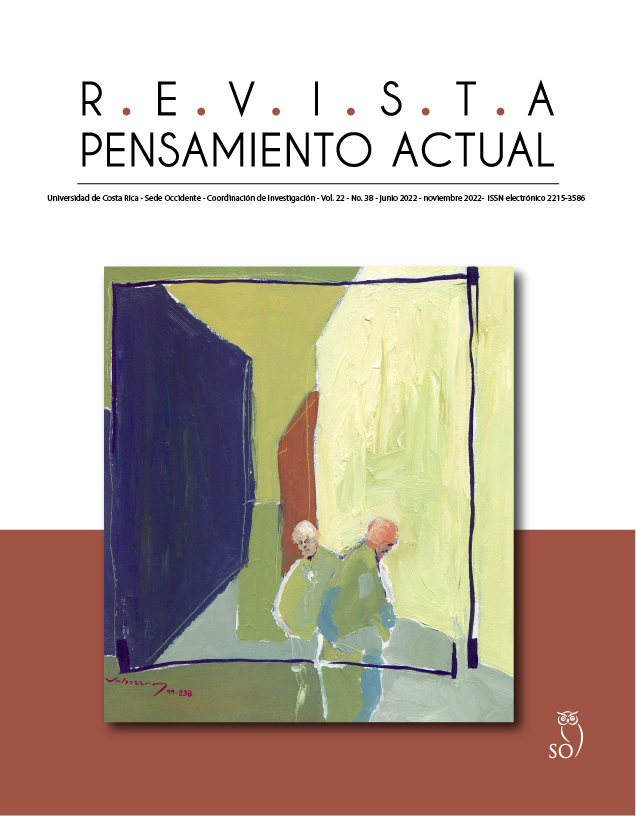Abstract
The internet and social networks have transformed the ways in which the communication process is carried out today. An example of this can be seen when Cross (2007) states that "the Internet allows people from all over the world to be connected on a scale unprecedented in the history of mankind" (p. 176). In this way, the way in which human beings relate to their peers and with the context in which they live, as well as the way they seek and appropriate information and, of course, the learning style has changed and is seeing strongly conditioned by the new forms of interaction and production that the internet provides for collaborative and meaningful work.
Facebook and other social networks are an important part of the daily lives of students. It is not a secret that they use these networks (which they also trust and rely on) as a means to keep abreast of what is happening around them and around the world, therefore, it is important to exploit the wealth that these networks possess. websites, since they focus on concern for social problems and communication between peers. Thus, every day there is a greater need for the speed of downloading data on the Internet, the intuitive nature of applications and their versatility in relation to supporting the user's wishes.
The analysis of Greek literary texts, the approach to Greek culture in general, and its contributions to our times involve participation, interaction and, above all, assertive communication. If the use that students give to social networks is focused on these purposes, that is, to share information (content, videos, photographs, among others), to be supported by the knowledge and other contributions of classmates Finally, to communicate, the idea of integrating them into the classroom context as virtual (or digital) interaction environments or mechanisms could offer effective results for the development of the teaching and learning process.
In this way, by using Facebook, as a didactic tool, there is the possibility of incorporating the classroom, and the contents taught during the lessons, into the daily context of the students, that is, into real life, as Herrera (2012) manifests it when he points out that, through social networks, human beings have been allowed to transcend the barriers (break them if necessary), between learning contexts and real practice spaces.
References
Adaime, I. et al. (2010). El 'Proyecto Facebook' y la posuniversidad: sistemas operativos sociales y entornos abiertos de aprendizaje. Editorial Ariel.
Bernaza Rodríguez, G. y Lee Tenorio, F. (2005): El aprendizaje colaborativo: una vía para la educación de postgrado. Revista Iberoamericana de Educación, 37(3), 1-18.
https://doi.org/10.35362/rie3732712
Coll, C y Monereo, C. (2008): Psicología de la Educación Virtual: aprender y enseñar con las Tecnologías de la Información y la Comunicación. Morata.
Cross, J. (2007). Informal Learning: Rediscovering the Natural Pathways That Inspire Innovation and Performance. Pfeiffer.
EDUCAUSE. (2007). Seven things you should know about Facebook II, 2007. http://net.educause.edu/ir/library/pdf/eli7025.pdf
Herrera, F. (2012) Aprendizaje en red y actividades digitales significativas. Revista Mosaico, (28), 4-7.
Herrera, F. y Pujolá, J. T. (2012). Actividades Triple C para el aula de ELE: consumir, crear y compartir información en redes sociales. http://www.slideserve.com/joella/actividades-triple-c-para-el-aula-de-eleconsumir- crear-y-compartir-informaci-n-en-redes-sociales
Johnson, D. y Johnson, E. (1999). El aprendizaje cooperativo en el aula. Paidós.
Llorens Cerdá, F; y Capdeferro, N. (2011): “Facebook’s Potential for Collaborative e-Learning”. Revista de Universidad y Sociedad del Conocimiento (RUSC). 8(2) 197-210. http://rusc.uoc.edu/ojs/index.php/rusc/article/view/v8n2-llorenscapdeferro/ v8n2-llorenscapdeferro-eng
Romaní, C. y Pardo, H. (2007). Planeta Web 2.0. Inteligencia colectiva o medios fast food. Recuperado de: http://www.planetaweb2.net/

